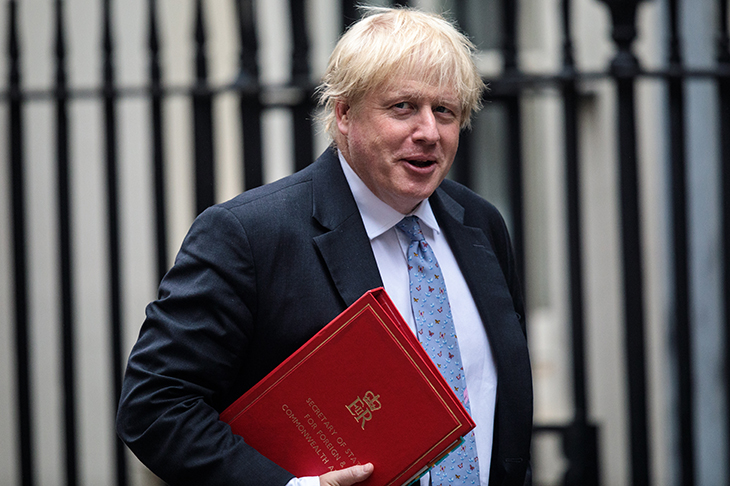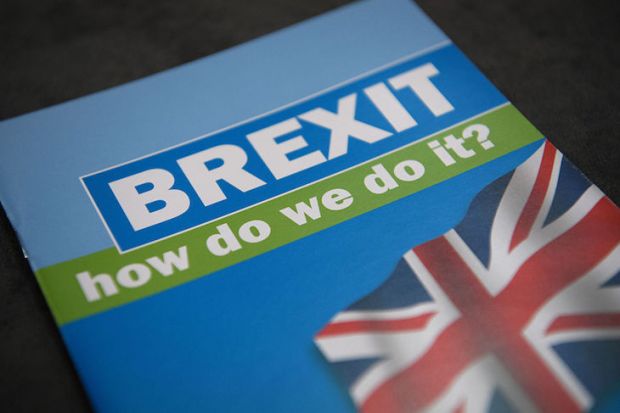One of the oddities of this parliament has been that, despite everything, the government has remained ahead in the polls up to now. But the political price of failing to pass a deal and leave the EU is now becoming apparent. Labour is ahead, Nigel Farage is back, and the right is split again. In the past month, Tory support among Leave voters has fallen by 20 per cent.
In normal circumstances, such numbers would extinguish any hopes of a fourth term for the Tories. But Labour’s own divisions over Brexit and Jeremy Corbyn’s political weaknesses mean that this isn’t necessarily the case.
A big argument is taking place within the Tory party about the correct response to the situation. One camp argues that the party needs to define itself more clearly on Brexit to win back Leave voters. The alternative view is that the Tories must concentrate on their traditional electoral coalition. Proponents of this view point out that the Tories won a majority in 2015 despite Ukip polling 13 per cent of the vote, and that a third of the Tory vote in 2017 came from Remainers.
The coming Tory leadership contest is going to turn into a debate between these two camps. Former party chairman and chief whip Sir Patrick McLoughlin is already warning that it would be electoral suicide for the Tories to change themselves into the Vote Leave party.
Much of the electoral calculation will turn on what Labour does next. If Britain is still in the European Union in September when Labour party conference begins, it is likely that a second referendum will become party policy. It would then become far easier for the Tories to accuse Labour of trying to block Brexit. But Corbyn is unenthusiastic about a second referendum, so may choose to do a deal with Theresa May to try and get a withdrawal agreement through the Commons before then. If he does, it will be impossible for the Tories to portray Labour as Brexit blockers.
Those involved in the Labour-Tory Brexit talks think that ‘the probabilities are low’ that both sides will reach an agreement. If this is right, then Britain will likely still be in the EU come September and the Labour leadership will be forced to abandon its ambiguity about a second referendum. At this point, the electoral case for Boris Johnson as Tory leader will become stronger. The argument for the former foreign secretary is that he — as a figurehead of the Leave campaign — is best placed to win back those Brexit voters who have abandoned the Tories. At the same time, he would be able to capitalise on the discomfort felt in Leave-voting Labour constituencies over the party’s decision to go for a second referendum.
More than 70 per cent of Labour’s most marginal seats voted Leave. Indeed, if you look at the seats the Tories are closest to winning — or losing — one is struck by how the overwhelming majority of them backed Brexit. Johnson is the most obvious Leave tribune that the party has.
The electoral case against Johnson is that he could cost the Tories another part of their electoral coalition — the third of their vote that comes from former Remainers. This would be a particular risk in a scenario where Johnson becomes prime minister before a withdrawal agreement has passed; an active willingness to do no deal would be a particularly hard sell with this group.
Johnson is clearly aware of his vulnerability with these voters. In recent months, he has been busy emphasising his ‘one nation’ Tory credentials and arguing that one’s view on Brexit doesn’t define one’s entire political persona. He will try and run as a Brexiteer, but not as the candidate of the right. But in a Tory leadership contest while Britain is still in the EU, it will be hard for him to get people to focus on anything other than his views on Europe.
The other question about the Tory Leave strategy is: how sustainable is it? Bishop Auckland, which the Tories came within a few hundred votes of winning last time, is often cited as the kind of seat that the Tories could pick up with a Brexiteer leader. But this seat has never had a Tory MP and has been Labour since 1935. There are some signs that Brexit is now leading to an electoral realignment. There is, though, reason to doubt how much appetite Bishop Auckland has for a traditional Tory economic agenda.
The irony of the current situation is that whatever strategy the Tories decide to pursue, they would have a better chance of success if a Brexit deal passed. In any election campaign fought while Britain is still in the EU, the Tories would suffer from two structural disadvantages. First, they would have a massive trust problem. How would they get voters to take what they said seriously given the fact that Britain hadn’t left the EU? Second, Tory divisions over Brexit would dominate the campaign. The Tory leader would spend their whole time having to respond to what their candidates had said about Europe. This would leave the field free for Corbyn to talk about domestic issues. Allowing Corbyn into Downing Street would be one of the most profound failures in the Tories’ history. A Corbyn government would make it harder for the Tories to win again and losing power would also increase the chances of a Tory split.
If the Tories go into the next election with Britain still in the EU, they would be in a tricky political position regardless of who is leader. As one cabinet minister warns: ‘If you’re seen as the Brexit party and you haven’t delivered Brexit, then you’ve not got much left.’ But May doesn’t have the votes to pass the withdrawal agreement and it isn’t clear whether there’s even a majority for a softer deal in the Commons. The longer this impasse goes on, the worse it will be for the Tory party.
Got something to add? Join the discussion and comment below.
Get 10 issues for just $10
Subscribe to The Spectator Australia today for the next 10 magazine issues, plus full online access, for just $10.
You might disagree with half of it, but you’ll enjoy reading all of it. Try your first month for free, then just $2 a week for the remainder of your first year.















Comments
Don't miss out
Join the conversation with other Spectator Australia readers. Subscribe to leave a comment.
SUBSCRIBEAlready a subscriber? Log in